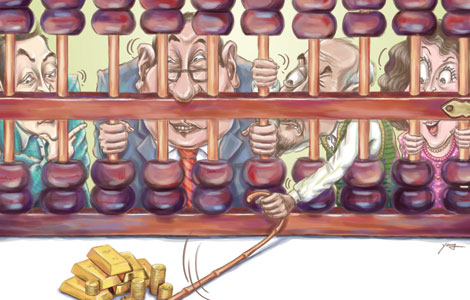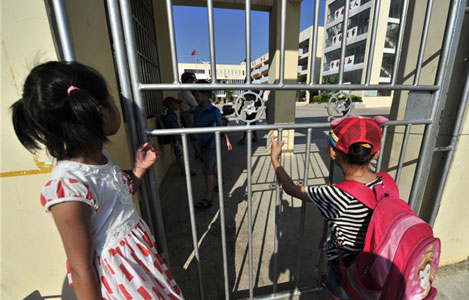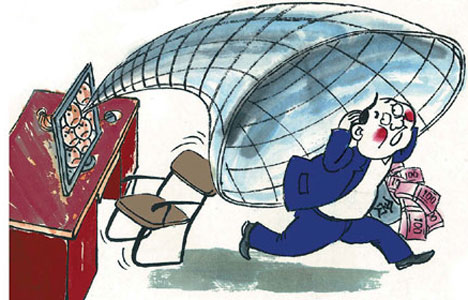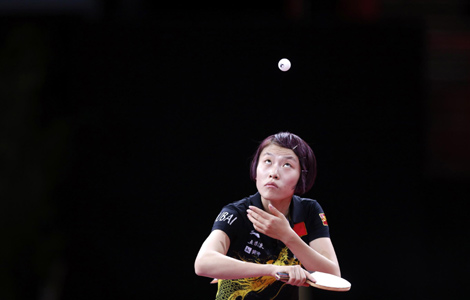US neutrality urged on China-Japan dispute
Updated: 2013-05-18 14:01
(Xinhua)
|
|||||||||||
WASHINGTON - China's Ambassador to the United States Cui Tiankai on Friday urged Washington to remain "truly neutral" on the Sino-Japanese territorial dispute in East China Sea by honoring its promise to "take no side".
In an interview published by the US magazine Foreign Affairs on its website, Cui blamed Japan for creating the dispute and tensions over the Diaoyu Islands by taking the move to "nationalize" the islands last year, breaking a previous agreement to put the dispute aside.
"When China and Japan normalized relations with each other, the leaders of both countries decided to put such disputes aside ... We had tranquility over these islands for many years, until the Japanese government decided to nationalize the islands last year," the Chinese envoy said. "The legal action taken by the Japanese government really provoked everything."
Cui said that, in order to resolve the dispute, China and Japan have to engage in very serious negotiations, but Tokyo is unwilling to make any serious efforts to "start very serious talks."
As to what role the United States can play in helping resolve the China-Japan dispute, Cui said that "the most helpful thing the US could do is to remain truly neutral, to take no side."
He said it seems that Washington has not yet fulfilled its promise to remain neutral on the Diaoyu Islands dispute. "When the United States talks to us, they say they'll take no side, but sometimes, when they talk to the Japanese or when they make public statements, we hear something different," he said, referring to the US stance on the dispute.
Washington has repeatedly stated that it takes no side on the conflicting claims on Diaoyu Islands, which are historically part of China's territory, but opposes unilateral moves to damage the so-called Japan's administration of the islands. China has complained that the United States ignores the fact that it was Japan which first took unilateral steps to change the status quo.
On the China-US relationship, Cui said that it has been "moving forward steadily" in the last four years. "I think there is a clear mutual understanding between the two governments about the need to have a constructive and steady relationship -- to base our partnership on mutual respect and mutual benefit," he said.
The two countries are determined to not allow the history of zero-sum game between a rising power and an existing one to repeat itself, through developing a new type of great-power relationship, Cui said, adding that this is a long-term goal for the two countries.
In the interview, the veteran Chinese diplomat also refuted the US allegations of Chinese cyber attacks against American computer networks, citing that the United States has not had hard evidence to prove them.
Moreover, he noted, the United States is much more advanced than China in terms of the development of information technologies and "is in better position both to defend itself and to maybe go on the offensive against others."
Related Stories
US urged not to take sides over Diaoyu Islands 2013-05-08 00:57
US told to be careful in Diaoyu dispute 2013-05-02 00:41
Japan, not China, taking 'unilateral or coercive actions' on Diaoyu Islands dispute 2013-05-01 15:17
China reiterates to resolve territorial disputes 2013-04-26 23:48
Territorial dispute should enter 'resting stage' 2013-03-19 06:42
Today's Top News
ZTE banks on growth in Indian telecom market
Top restaurants feel effect of new rules
Premier's visit to fuel economic cooperation
Call for more holiday time
Handicraft masters look for apprentices on job fair
China urges release of fishermen
Yingxiu five years on
Visiting Tajik president seeks to enhance ties
Hot Topics
Lunar probe , China growth forecasts, Emission rules get tougher, China seen through 'colored lens', International board,
Editor's Picks

|

|

|

|

|

|





